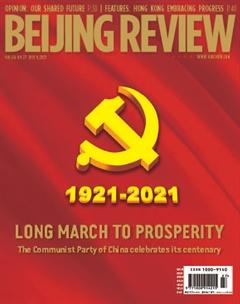Working Toward an Inclusive World
By Ong Tee Keat
The world has never been homog- enous. Over the ages, the plurality of man has been blamed as the root of various conflicts. But it must also be acknowledged that it is through such diversity that mankind managed to compete and progress, ultimately contributing to what it is today.
The waning and waxing of human cooperation has characterized the history of mankind. Nonetheless, it is obvious that mankind risks its very survival if coordinated collaboration continues to remain so weak in the face of existential threats. We know that no man is an island. This is particularly true as the world is ravaged by the prevailing pandemic.
In the past year, the global community has generally failed to make a concerted fight against COVID-19. Multilateral international collaboration has left much to be desired. The unipolar hegemon was, for the first time in the past seven decades, conspicuously absent from the international web of collaboration; let alone providing leadership in the fight against the deadly contagion.
On the other hand, incensed by the threat of being displaced as the unipolar superpower by the meteoric rise of China, the U.S. has grown intolerant, if not paranoid of, any outreach initiatives by China engaging the international community.
The level of intolerance has reached a record high. Even the successful containment of the epidemic in China is discriminated against with ideological prejudice. Chinese aid in terms of personal protective equipment to several of the countries hit worst by the pandemic has also been labeled a “geopolitical Trojan horse.”

The specter of McCarthyism is being resurrected at the expense of multilateral international cooperation. Indeed, the COVID-19 outbreak has heavily polarized the global community. Instead of enhancing the synergy of human resources and endeavor, the contagion has become a political poker to stoke a fresh cold war, pushing the world to the brink of conflict.
The end of Pax Americana
From the American perspective, realizing the dwindling of its global geopolitical influence, the unbridled spread of the contagion across the U.S., as well as among its allies reminds the superpower and the world of the “Suez Moment.” This has led many to trumpet the end of Pax Americana—the relative peace thought to be brought about by the preponderance of the U.S. power after World War II. The rise of China and its increasing role in geopolitics has now been labeled a new potential threat.

